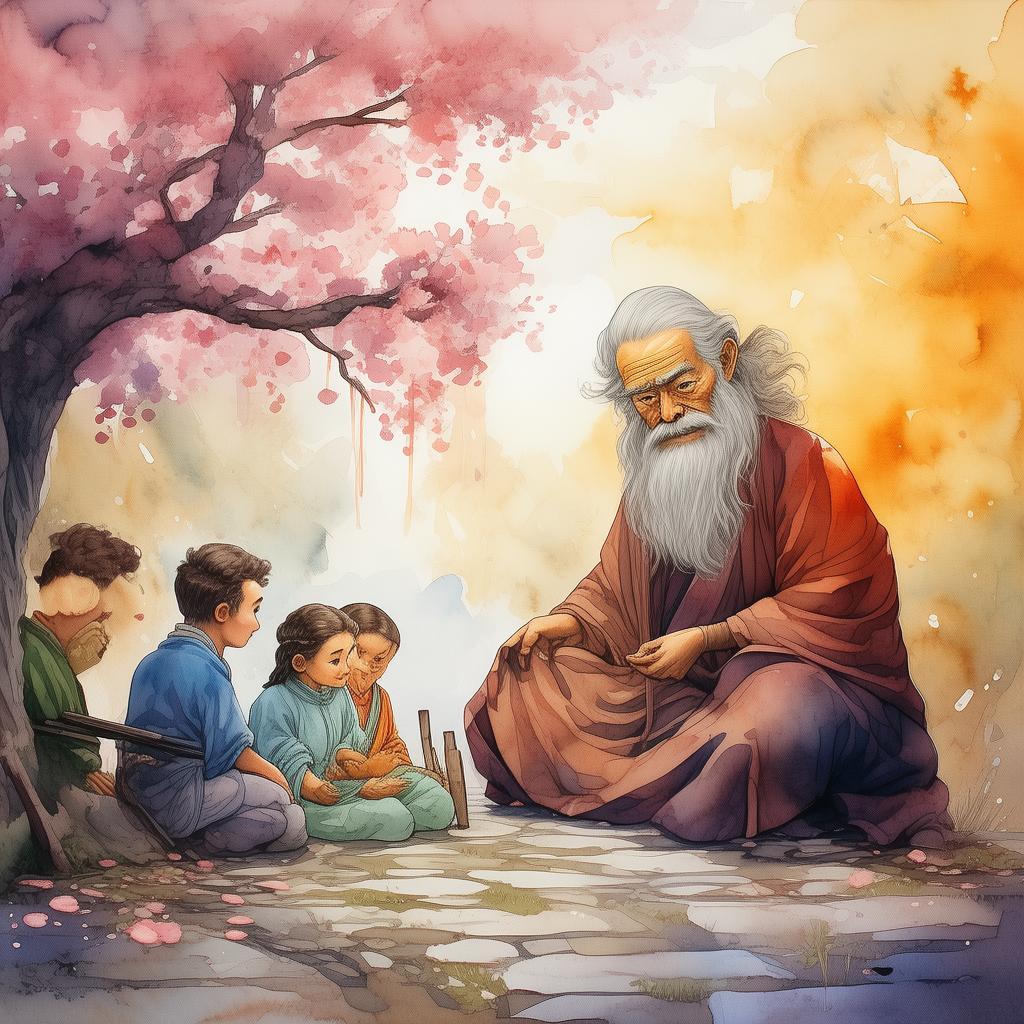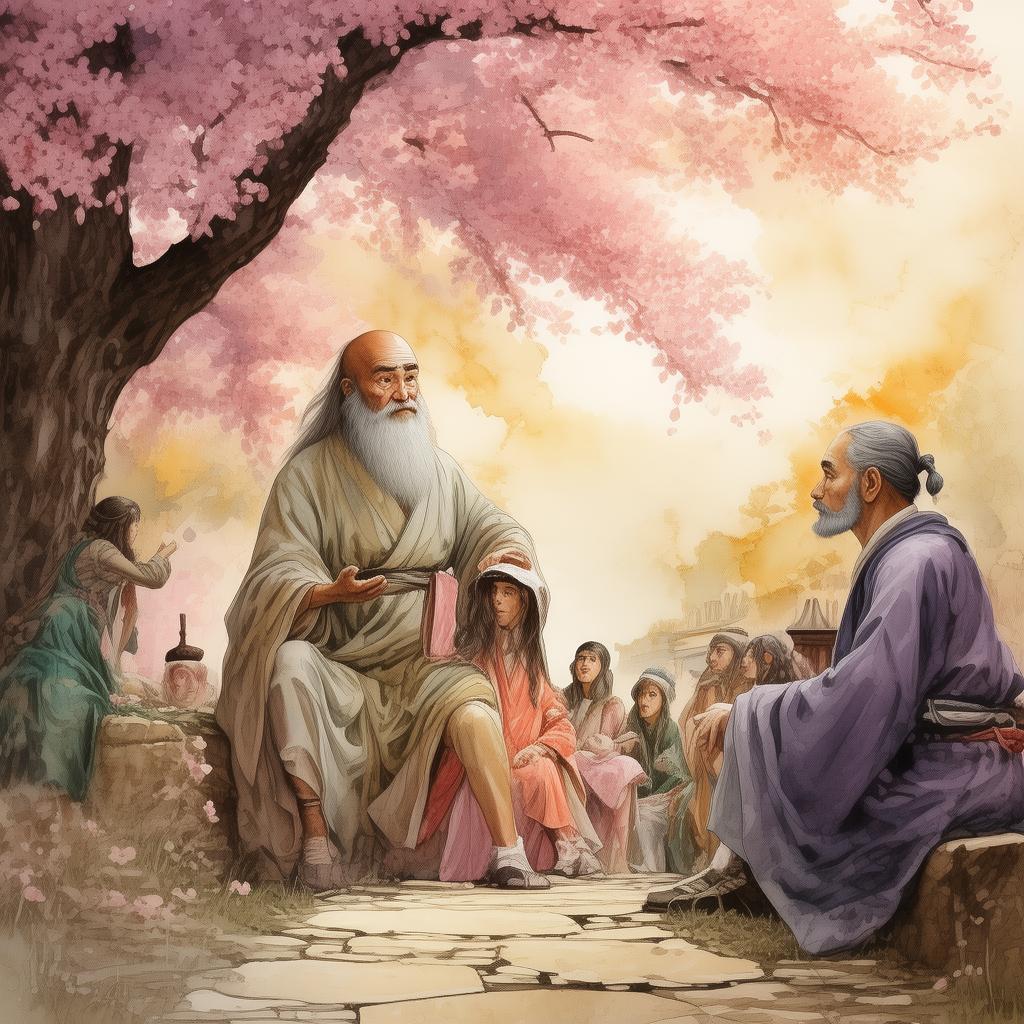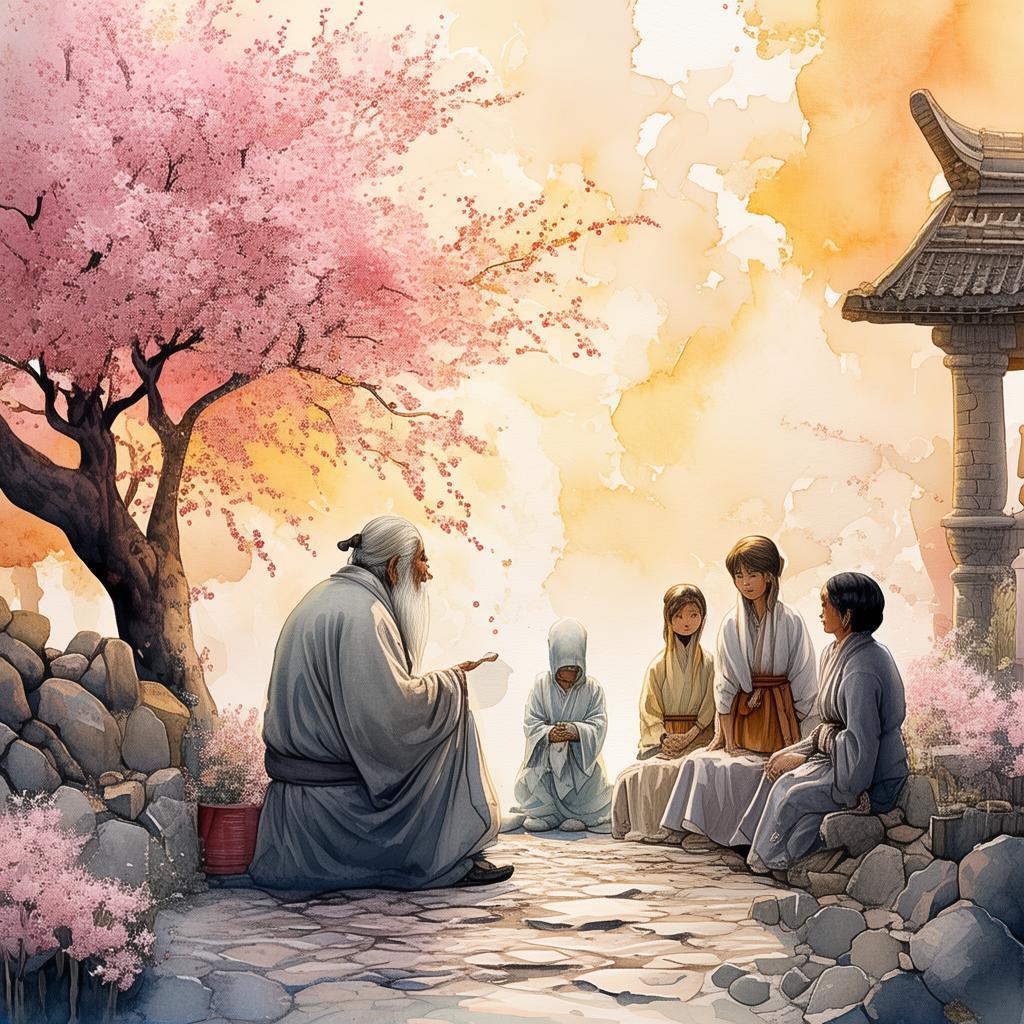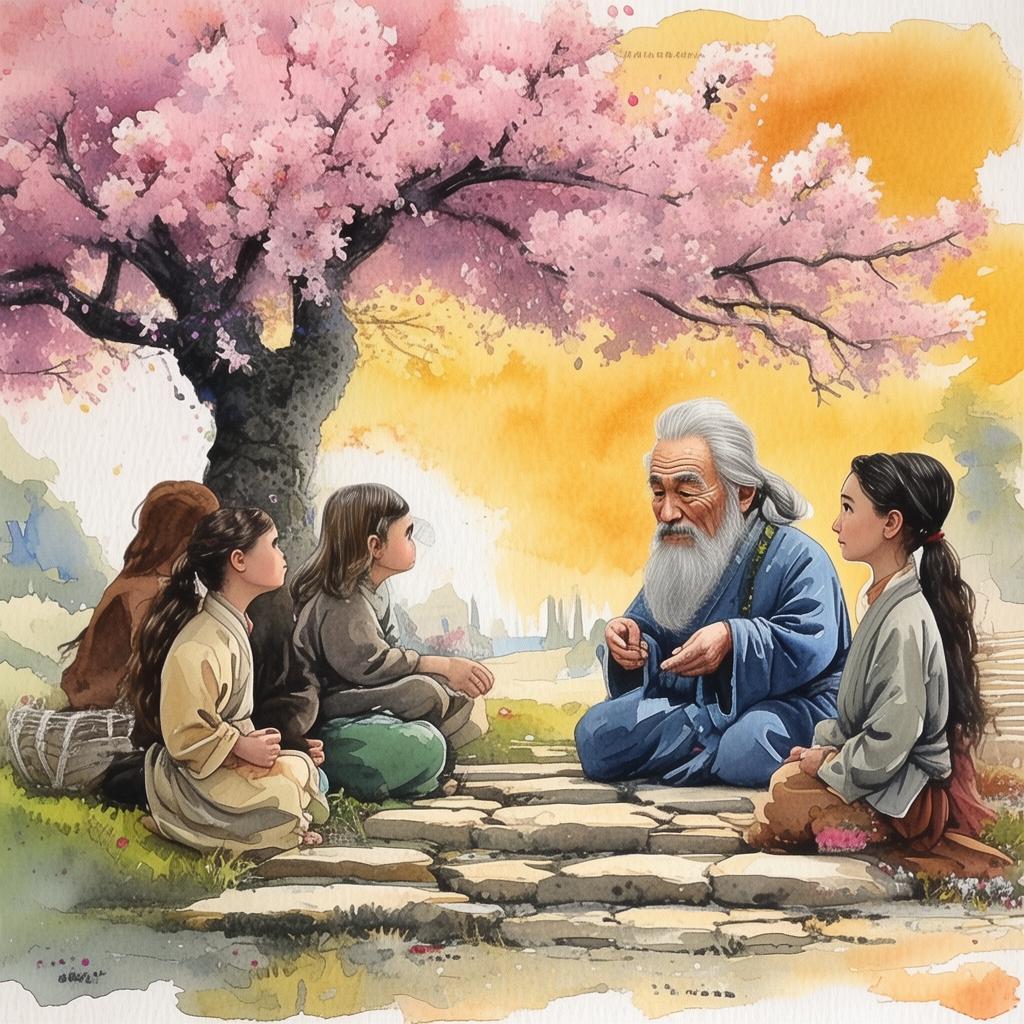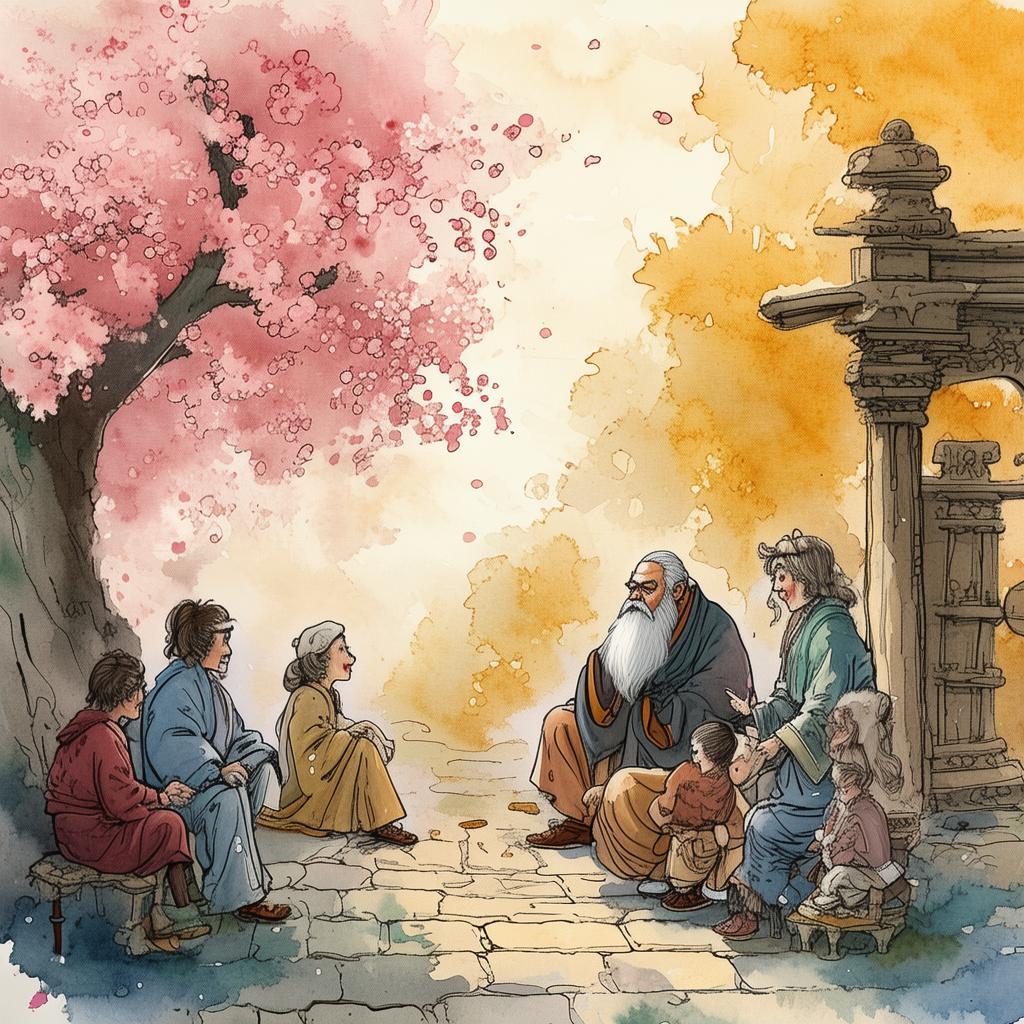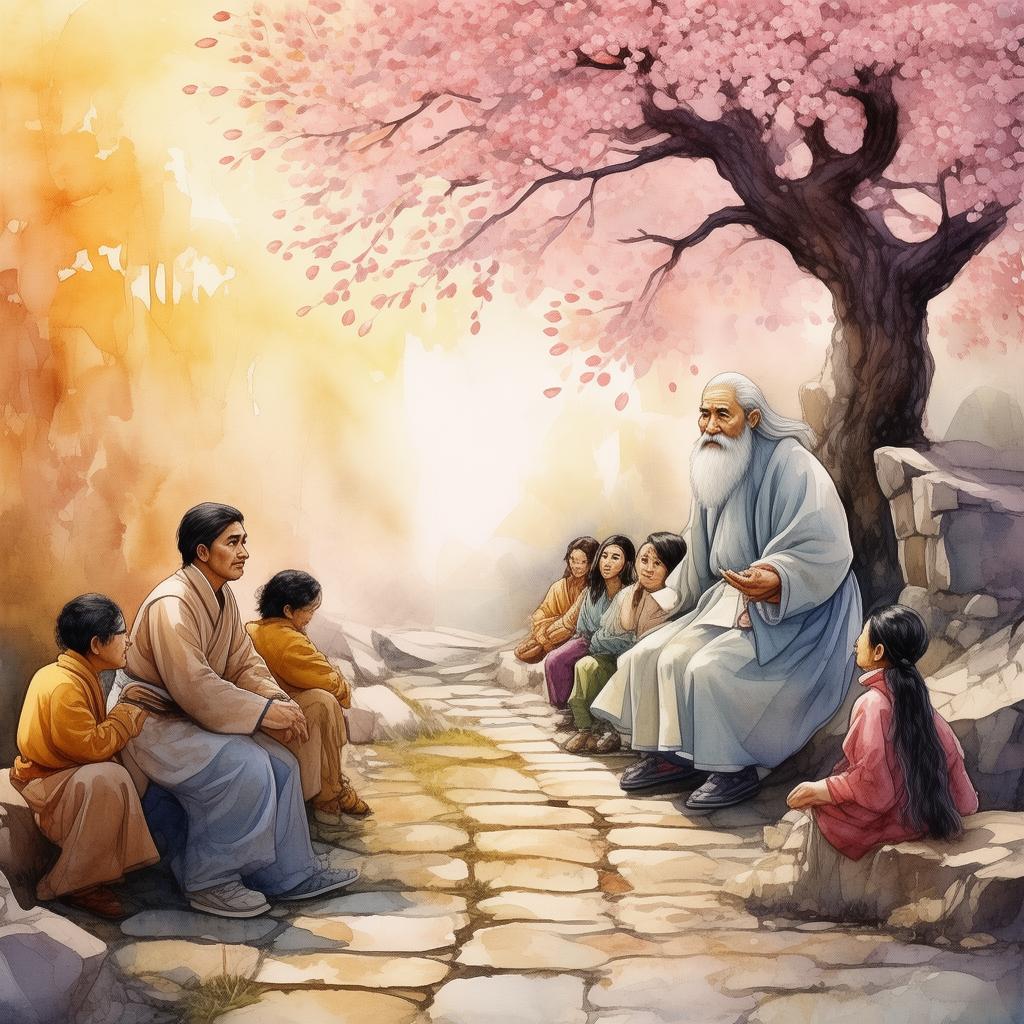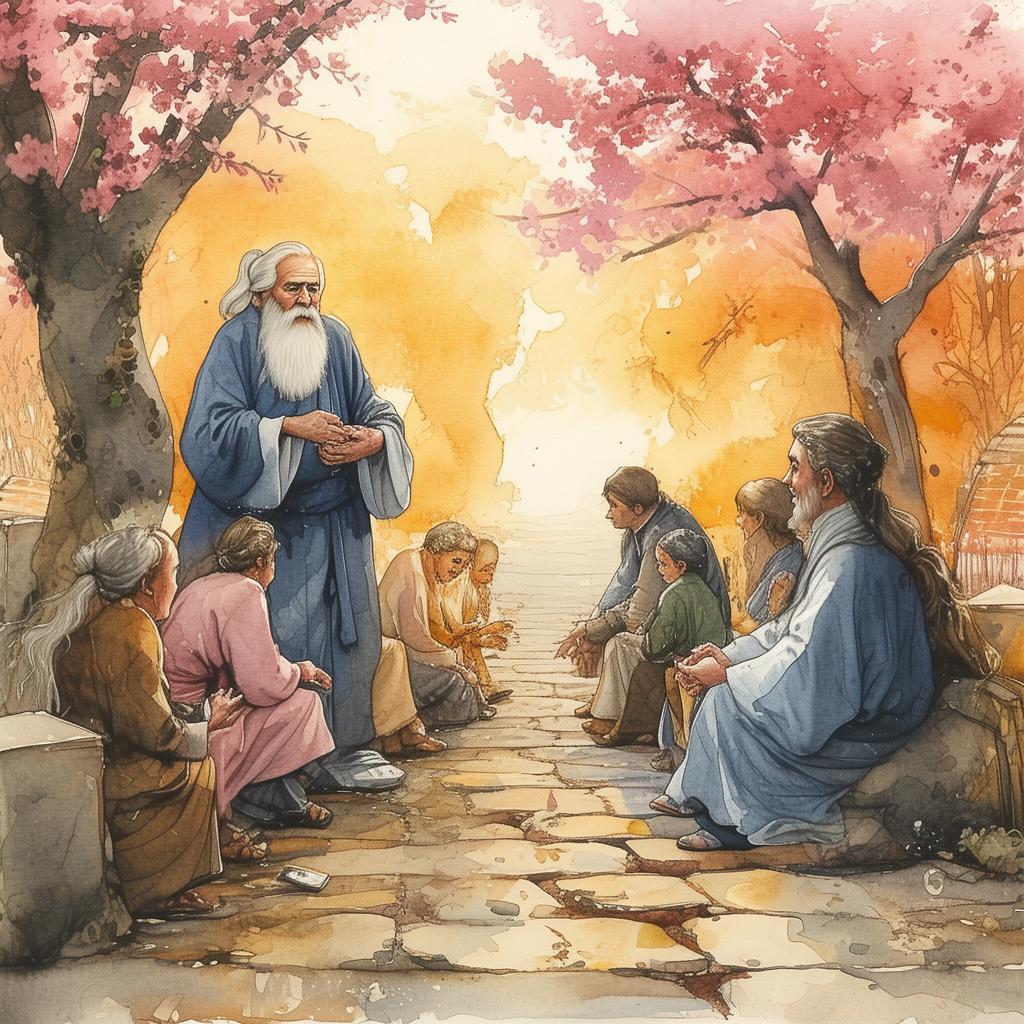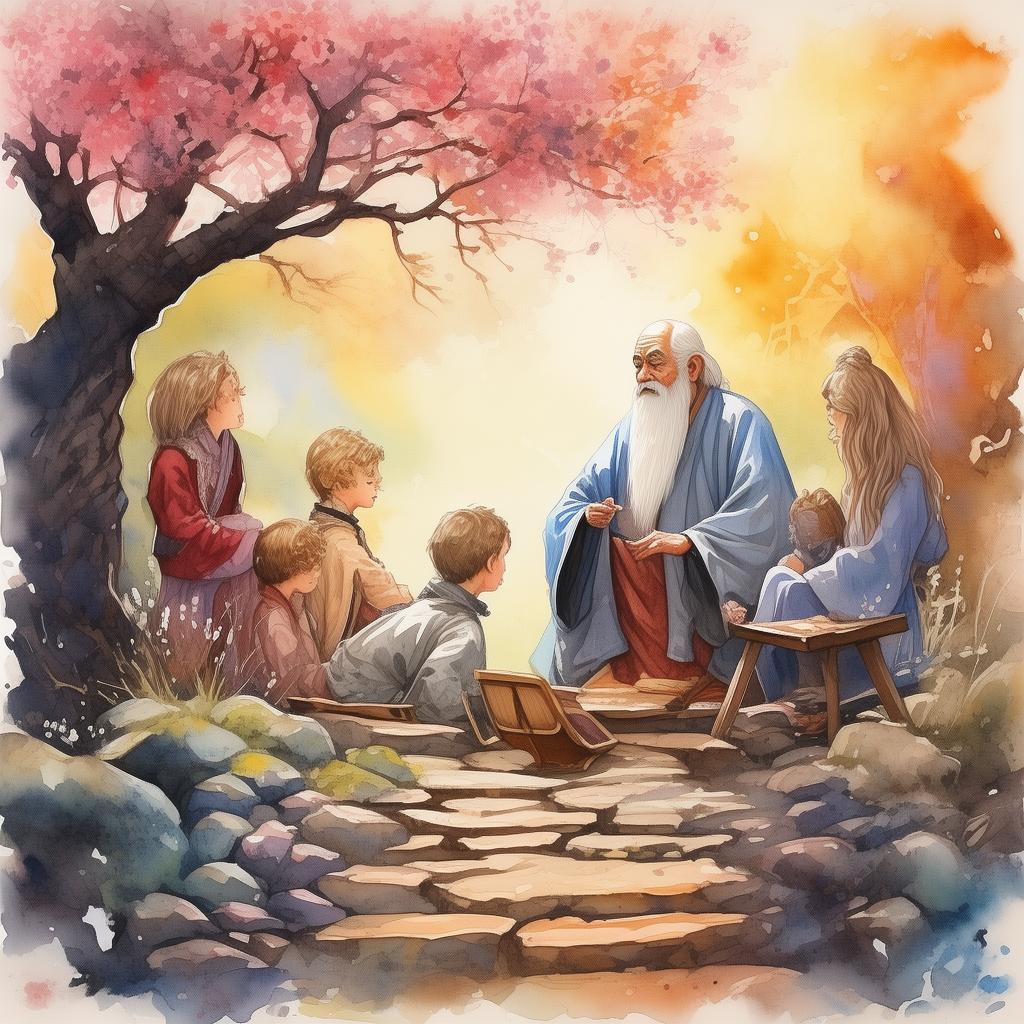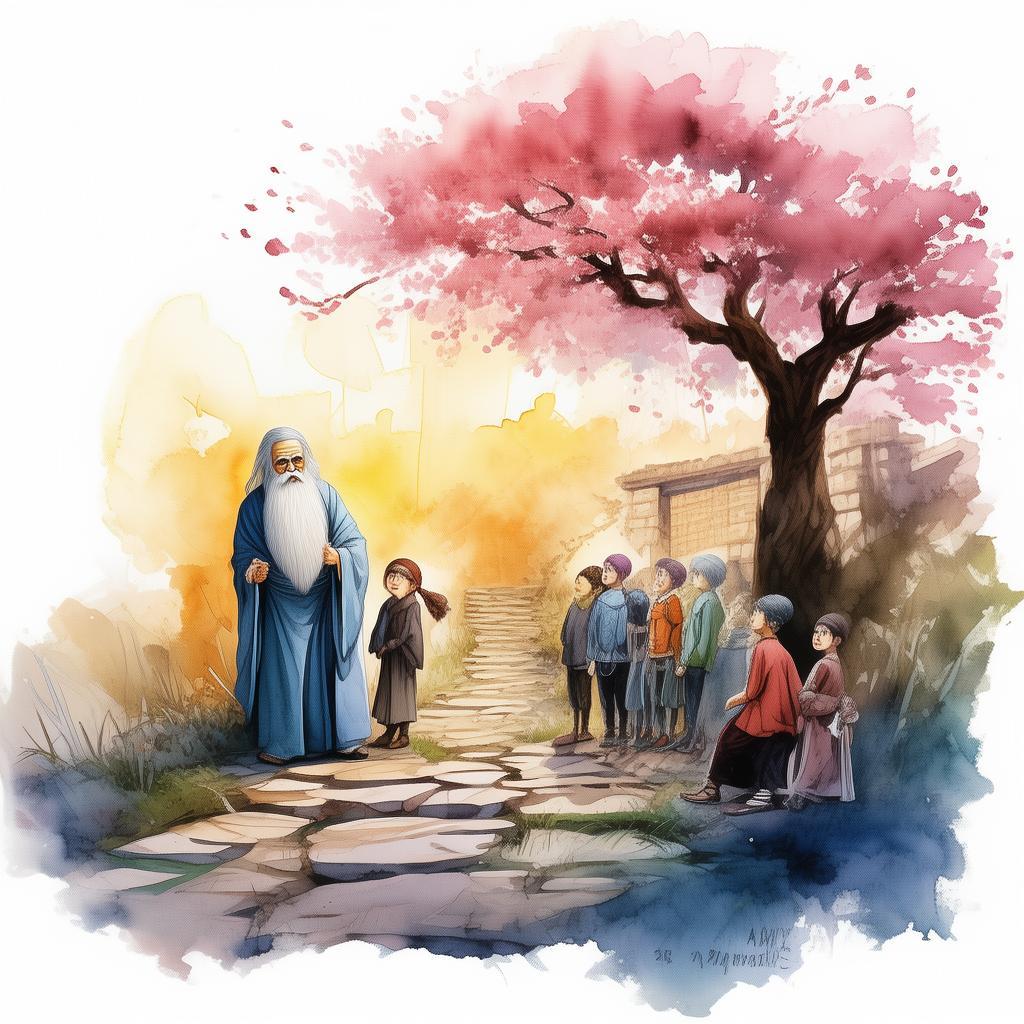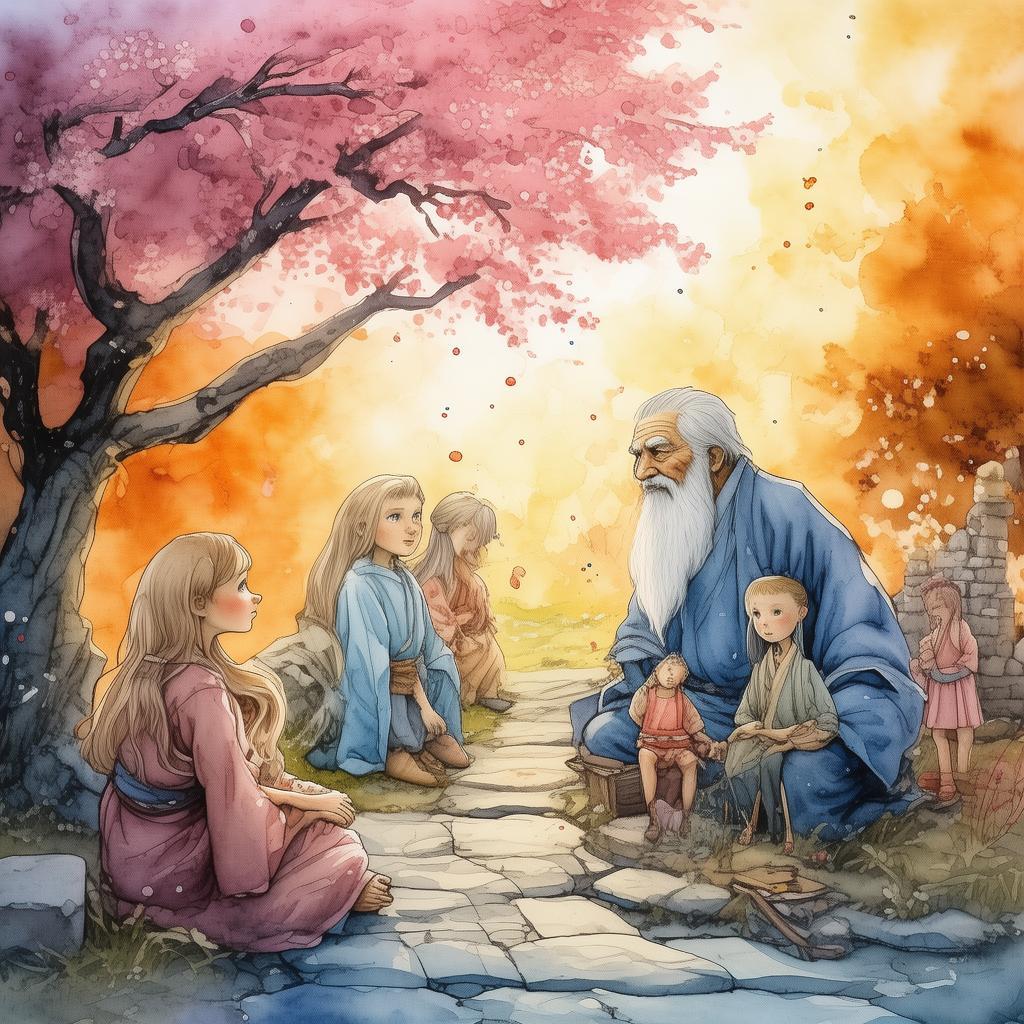The Lute's Resonance: A Quest for the Lost Melody
In the heart of an ancient Chinese village, nestled between rolling hills and whispering rivers, there lived a young man named Ling. He was the son of a humble lute maker, a craft that had been passed down through generations. The lutes were not just instruments to the villagers; they were the echoes of a lost heritage, each string a thread in the tapestry of their ancestors' stories.
As a child, Ling had listened to the lutes hum melodies that seemed to tell tales of love, loss, and the enduring spirit of the people. But as he grew older, the lutes fell silent, their voices lost to time. The village had forgotten the songs, and the lute-making craft was on the brink of extinction.
One day, while rummaging through his father's attic, Ling stumbled upon an old, dusty lute. The wood was worn, the strings frayed, but there was a peculiar resonance that seemed to call to him. He plucked a string, and a single, haunting note echoed through the room. It was the melody of his ancestors, a melody that had been forgotten.
Ling knew he had to find the lost melody. He believed it was more than just music; it was a piece of his heritage, a connection to the past that had been severed. With the lute in hand, he embarked on a quest that would take him from the tranquil village to the bustling city, from the mountains to the sea.
His first stop was the local library, where he spent days poring over ancient scrolls and books. He discovered that the melody was once known as "The Lute's Echoes," a song that had been sung at the village's founding ceremony. It was a melody that symbolized the unity and resilience of the people.
Ling's quest led him to a retired lute master, an old man with eyes that held the wisdom of centuries. The master listened to Ling's story and nodded solemnly. "The melody is not just music," he said. "It is the essence of our heritage, the soul of our ancestors. To find it, you must first understand it."
The master taught Ling the art of lute-making, the intricate patterns and the secrets of the craft. They worked together, crafting new lutes and tuning them to the ancient melody. The process was arduous, and at times, Ling felt like he was chasing a ghost. But he pressed on, driven by a sense of purpose and the echoes of the past.
As the days turned into weeks, Ling began to see the connection between the lute and the melody. He realized that the lute was not just an instrument; it was a vessel, a container for the song. The strings were the memories, the wood the stories, and the air around it the voices of the ancestors.
One evening, as the sun dipped below the horizon, Ling and the master sat in the library, the room filled with the soft glow of lanterns. They tuned the lute, and as the melody began to flow, it was as if the walls of the room were dissolving, revealing the past. The ancestors appeared, their faces etched in the lantern light, and they sang the song of their time.
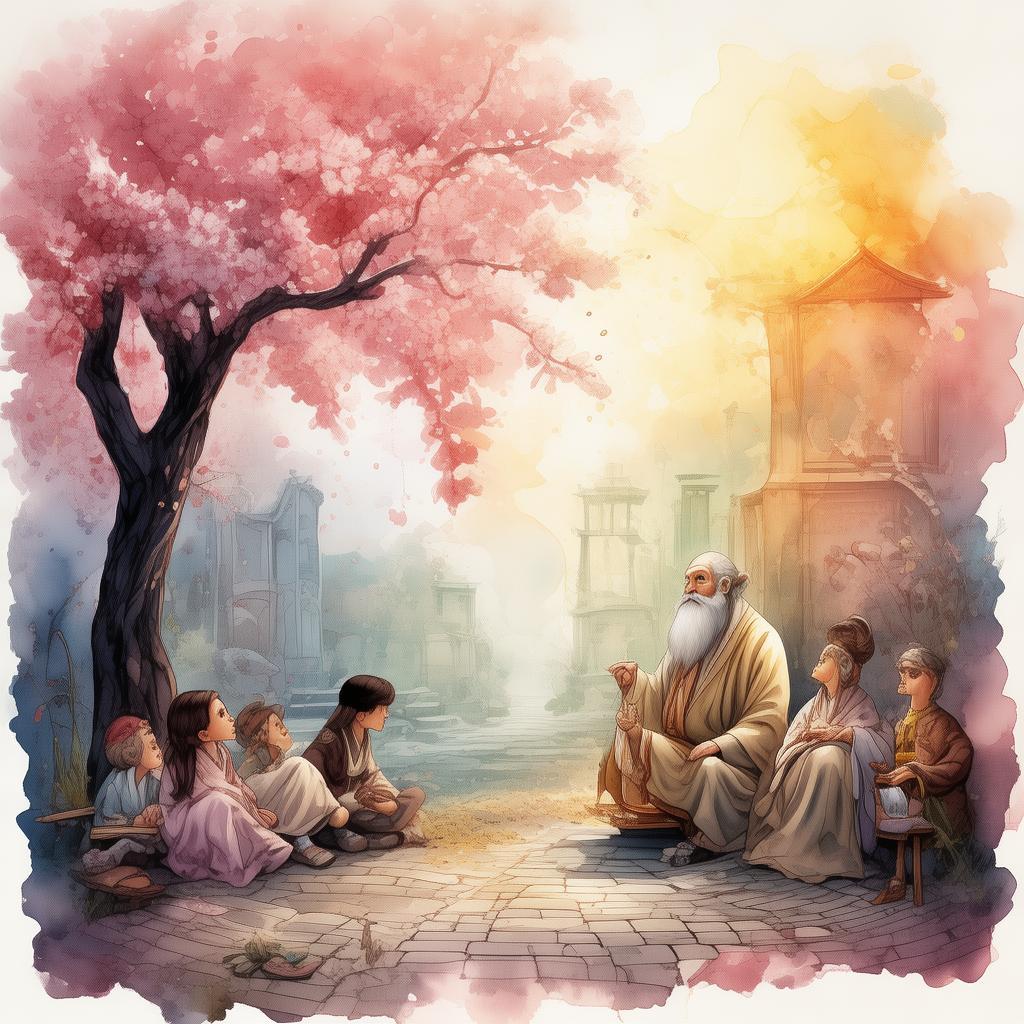
Ling felt a surge of emotion, a connection to the past that he had never known. He realized that the melody was not just a song; it was a bridge, a connection between the past and the present, a reminder of who they were and what they stood for.
With the melody in his heart and the lute in his hands, Ling returned to his village. He performed the song at the village square, and as the melody filled the air, the villagers gathered, their eyes wide with wonder. The lute's echoes had returned, and with them, the lost heritage.
Ling's journey had not only uncovered the lost melody but also redefined his own path. He became the guardian of the lute's echoes, a keeper of the heritage that had been passed down through generations. And as he played the lute, the echoes of the past continued to resonate, a testament to the enduring spirit of the people.
✨ Original Statement ✨
All articles published on this website (including but not limited to text, images, videos, and other content) are original or authorized for reposting and are protected by relevant laws. Without the explicit written permission of this website, no individual or organization may copy, modify, repost, or use the content for commercial purposes.
If you need to quote or cooperate, please contact this site for authorization. We reserve the right to pursue legal responsibility for any unauthorized use.
Hereby declared.
